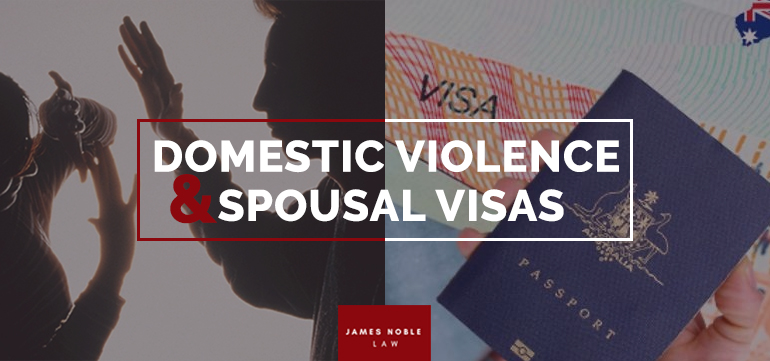
Domestic Violence in Australia & Property Matters
 The issue of family violence is currently governed by both the Family Law Act 1975 (Cth) and the Family Law Legislation Amendment (Domestic Violence in Australia and Other Measures) Act 2011 (Cth). The recent amendments effectively change the Family Law Act to provide:
The issue of family violence is currently governed by both the Family Law Act 1975 (Cth) and the Family Law Legislation Amendment (Domestic Violence in Australia and Other Measures) Act 2011 (Cth). The recent amendments effectively change the Family Law Act to provide:
- Greater protection from harm when determining the child’s best interests;
- Changing the definition of ‘Family Violence’ and ‘Abuse’ to reflect a modern understanding of the terms;
- Providing a wider scope for what Court’s may consider in relation to family violence orders;
- Improving reporting requirements and Court’s access to evidence;
- Allowing child protection authorities to participate in family law proceedings; and
- Gender-neutral terms mirror the Family Law Act.
Application to Proceedings
 The recognized legal principle from the case of Kennon and Kennon [1997] FamCA 27 provides a party to proceedings which have been the victim of family violence may receive an additional percentage of the asset pool in their favour. To establish this argument, the victim of family violence must establish:
The recognized legal principle from the case of Kennon and Kennon [1997] FamCA 27 provides a party to proceedings which have been the victim of family violence may receive an additional percentage of the asset pool in their favour. To establish this argument, the victim of family violence must establish:
- A violent course of conduct occurred;
- During the marriage/relationship;
- Evidence of a significant adverse or discernible impact upon the party’s contributions to the marriage.
Requirement three essentially involves an argument that the contributions which were made by the victim of family violence in the marriage/relationship were made more arduous than they ought to have been. This argument is quite common where the Wife of the relationship has been subject to family violence by the Husband, which has caused her contributions as home-maker to be more difficult. These arguments have been successfully applied in numerous cases, including Doherty & Doherty (1996) FLC 92-652, Marando&Marando (1997) FLC 92-754, and Coad & Coad [2011] FamCA 622.
Difficulties in Applying the Principle from Kennon
Whilst the application of this legal principle may seem straightforward, Altobelli FM in Kozovski&Kozovski[2009] FamCA 1014 discussed the difficulty in analysing the required evidence to establish this argument. However, it appears that recent developments to sections 55 and 56 of the Evidence Act 1995 (Cth) and rule 10.12(d) of the Family Law Rules 2004 (Cth) may soften the application of admissible evidence to family violence matters. In the case of Britt & Britt (2017) FLC 93, the Full Family Court on appeal provided evidence that is probative, even slightly probative, will be admissible for the purpose of rationally affecting the determination of an issue. For evidence to be inadmissible, it must have no probative value.
Therefore, this also evidences to be admissible in relation to family violence where it may provide context to other evidence presented to the Court, establish the relationship of the parties in regard to finances, and, the credibility of each party.
Domestic Violence in Australia & Spousal Visas

The Department of Home Affairs guidelines provide certain persons applying for permanent residence in Australia to be able to continue this application following the breakdown of a marriage or relationship. Applicants within this process must provide evidence that either they or members of their family have been victims of domestic violence committed by the Australian partner. The requirements to continue this application are dependent upon the applicant demonstrating the relationship between the parties was genuine until ceasing, and, family violence took place during the relationship.
The categories of visa’s which consider the affect of family violence on the applicant include:
- Partner (permanent) (subclass 100) visa;
- Spouse (permanent) (subclass 100) visa;
- Interdependency (permanent) (subclass 110);
- Partner (temporary and permanent) (subclass 820/801) visas;
- Spouse (temporary and permanent) (subclass 820/801) visas;
- Interdependency (temporary and permanent) (subclass 826/814);
- Established Business in Australia (subclass 845);
- State/Territory Sponsored Regional Established Business in Australia (subclass 846);
- Labour Agreement (subclass 855);
- Employer Nomination Scheme (subclass 856);
- Regional Sponsored Migration Scheme (subclass 857);
- Distinguished Talent (subclass 858).
Need Legal Help?
If you need help, please contact the Brisbane Family lawyers team at James Noble Law today for a FREE, no-obligation 20-minute consultation. To schedule an appointment with one of our Qualified and experienced Family lawyers Brisbane.
Find Brisbane family lawyers on Google Maps near you.
You may also like to know more information about the
- Are you at risk of family violence?
- Notice of Child Abuse, Family Violence, or Risk in Parenting Proceedings
- Sex, Lies & Family Violence, Consider Your Options Today.
- Breaching Domestic Violence
- Mother withholding child from father Australia.
- Separated and Living Under One Roof?
- A Guide to Separation in Family Law Download.
- Learn about Family court portal.
- Online Divorce application In Australia.
- Divorce property settlement examples Australia.
- Family Law act 1975.


